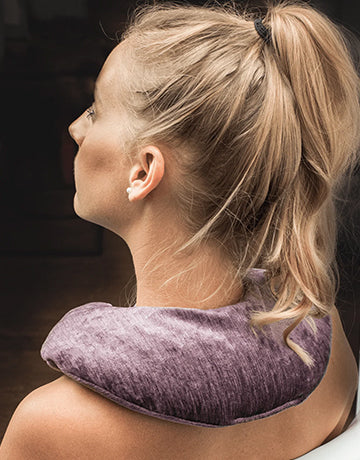Winter Self-Care: 10 Science-Backed Microhabits to Boost Your Mood and Wellness
Discover gentle, science-supported winter self-care habits to uplift your mood, enhance wellness, and bring cozy calm throughout the colder months. Embrace simple microhabits that nurture your mind and body naturally this winter.
Key Takeaways
- Winter moods can dip due to reduced light and circadian rhythm shifts, often linked with Seasonal Affective Disorder (SAD).
- Simple strategies like increasing light exposure, staying active, and prioritizing sleep support emotional resilience.
- Microhabits such as habit stacking, digital detox, and creating cozy spaces enhance mental wellness.
- Social connection and mindfulness are vital to counter winter isolation and stress.
- Embracing slowmaxxing encourages intentional rest and joy in the season’s quiet moments.
Table of Contents
- Understanding Seasonal Affective Disorder (SAD) and Winter Mood Dips
- 1. Light Exposure: The Brightest Mood Booster
- 2. Move Your Body: Gentle Activity to Elevate Mood
- 3. Nourish with Nutrition and Hydration
- 4. Sleep Regularity: Consistency Over Quantity
- 5. Digital Detox: Unplug to Recharge
- 6. Habit Stacking: Build Winter Wellness Easily
- 7. Cozy Home Environment: Embrace Hygge and Comfort
- 8. Mindfulness and Journaling for Mental Wellness
- 9. Social Connection: Stay Engaged and Supported
- 10. Embrace Slowmaxxing: Slow Down and Savor Winter
- Final Thoughts: Your Winter Self-Care Toolkit
Understanding Seasonal Affective Disorder (SAD) and Winter Mood Dips
Up to 20% of people experience mood dips and low motivation in winter due to reduced daylight and colder temperatures. Women are often more vulnerable to these shifts. This is mainly caused by disruption of our circadian rhythm — the internal clock that regulates sleep, mood, and energy — which depends heavily on light exposure.
Symptoms of SAD include fatigue, sadness, social withdrawal, and low motivation. Awareness is key, and managing these feelings with gentle, proven self-care microhabits can make a powerful difference without drastic lifestyle changes.
For additional natural comfort strategies, check out our guide on Natural Relief for Neck Pain: Harnessing the Power of Herbal Neck Wraps.
1. Light Exposure: The Brightest Mood Booster
Natural light exposure is essential for regulating your body's internal clock and increasing serotonin — the mood-enhancing brain chemical.
- Aim for 20 to 30 minutes of morning sunlight daily by stepping outside or sitting near a sunny window after waking.
- If sunlight is limited, use a light therapy box (10,000 lux) for about 30 minutes each morning to mimic natural light.
- Brighten indoor spaces with high-watt bulbs and open curtains during the day to boost ambient light.
These habits sharpen focus, improve sleep quality by setting your circadian rhythm, and meaningfully elevate mood. Learn more about light therapy and SAD at the National Institute of Mental Health.
2. Move Your Body: Gentle Activity to Elevate Mood
Physical movement is a natural antidepressant. Gentle activities like yoga, stretching, or quick walks can reduce anxiety and release feel-good endorphins.
- Try "exercise snacking" by adding short bursts of movement, such as a 5-minute brisk walk after meals.
- Practice mindful movement, focusing on sensations while walking or stretching to calm your mind.
- Engage in group exercise when possible for social and physical benefits.
Moving 3 to 4 times weekly supports brain function and stress resilience, even in chillier weather. For more tips, visit Harvard Medical School’s exercise and fitness resources.
3. Nourish with Nutrition and Hydration
Your diet directly impacts mood and energy through brain chemical support.
- Eat protein-rich foods like eggs, fish, lentils, and nuts to support serotonin and tryptophan.
- Include fiber-rich fruits and vegetables such as oats, broccoli, and avocados.
- Stay hydrated to maintain clear thinking and energy.
- If sunlight is limited, consider vitamin D supplements after consulting your healthcare provider.
Track how foods affect your mood to make more mindful choices. Expert advice can be found at the Cleveland Clinic nutrition and mental health guide.
4. Sleep Regularity: Consistency Over Quantity
Consistent sleep-wake schedules enhance mental and metabolic health more than simply increasing sleep hours.
- Go to bed and wake at the same time daily, including weekends.
- Create an evening routine to wind down: dim lights, avoid screens, and relax with calming activities like reading or gentle stretches.
- Journaling tomorrow’s to-do list can clear mental clutter for faster sleep onset.
To dive deeper, see Harvard Medical School’s sleep health education.
5. Digital Detox: Unplug to Recharge
Limiting screen time especially social media helps reduce anxiety and mental fatigue during long winter nights.
- Set specific times to check social media only.
- Remove distracting apps from your home screen.
- Take breaks from screens, especially an hour before bedtime.
- Replace screen time with meditation, deep breathing, or reading.
Explore mindful digital habits at the American Psychological Association.
6. Habit Stacking: Build Winter Wellness Easily
Pairing new habits with existing routines makes adopting winter wellness microhabits effortless.
- Meditate or practice gratitude right after brushing your teeth.
- Take a short walk outside after breakfast to link movement with a daily habit.
- Use visual cues like a glass of water on your nightstand to prompt actions.
Habit stacking fosters lasting, gentle routines during low-motivation times. Learn more from the Behavioral Science Lab.
7. Cozy Home Environment: Embrace Hygge and Comfort
Your surroundings deeply influence emotional wellness. A cozy, inviting home reduces stress and promotes calm.
- Use soft blankets, warm lamps, candles, and plush pillows.
- Decorate with winter motifs like pine cones and fairy lights to evoke nostalgia.
- Add comforting scents—vanilla, lavender, or woodsy aromas—to ground emotions.
- Play gentle music or nature sounds for serenity.
This Danish-inspired approach to slow living is beautifully explained on Nordic Nest.
8. Mindfulness and Journaling for Mental Wellness
Mindfulness practices train your mind to focus on the present and ease stress.
- Keep a gratitude journal to highlight daily positives.
- Use meditation apps like Headspace or Calm for accessible daily sessions.
- Write down tomorrow’s plans before bed to quiet the mind and enhance sleep.
Learn more about mindfulness techniques at Mindful.org.
9. Social Connection: Stay Engaged and Supported
Avoid winter isolation by maintaining social bonds, vital for mood and wellbeing.
- Schedule regular check-ins via phone or video with loved ones.
- Plan small social rituals or shared meals.
- Join community groups or clubs for belonging.
- Use virtual gatherings when in-person isn’t possible.
Social support lowers depression risk and boosts mental health. For guidance, see Harvard Health Publishing.
10. Embrace Slowmaxxing: Slow Down and Savor Winter
Slowmaxxing is a trending self-care approach encouraging intentional slowing down and savoring simple pleasures.
- Enjoy simple joys like a warm cup of tea, reading, or crafting.
- Practice contentment and gratitude for small moments.
- Focus on restorative activities that bring joy and comfort.
Slowmaxxing aligns with natural winter rhythms, inviting restoration over hustle. Discover more at the Slowmaxxing TikTok trend.
Final Thoughts: Your Winter Self-Care Toolkit
Winter self-care is about kind, consistent microhabits rather than perfection. Here’s your toolkit for a restorative season:
- Maximize natural light and consider light therapy.
- Move gently and mindfully.
- Nourish with wholesome foods, hydration, and vitamin D.
- Stick to consistent sleep schedules.
- Limit screen time with regular digital detoxes.
- Build new habits by stacking onto existing routines.
- Create a cozy, hygge-inspired home atmosphere.
- Practice mindfulness and journaling.
- Stay connected socially.
- Slow down and savor life with slowmaxxing.
At KOZI Wellness, we celebrate the power of natural comfort to restore and rejuvenate. Enhance your winter practice with our handcrafted herbal wraps and spa essentials for that extra layer of soothing warmth and relaxation.






